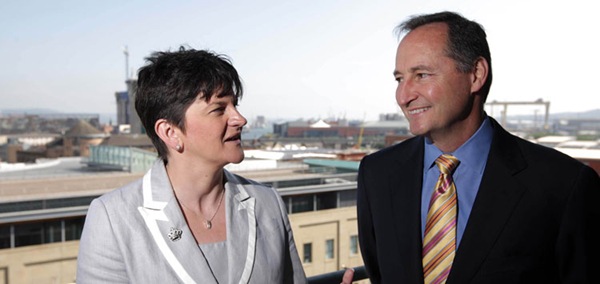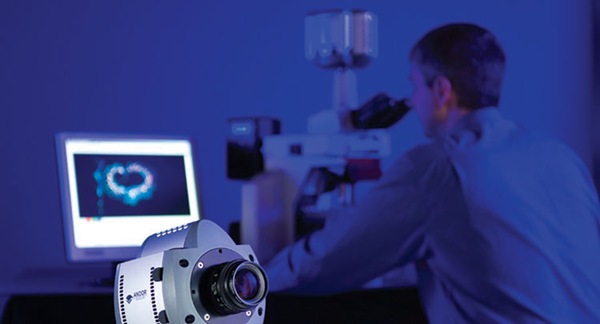Star companies
TG Eakin
Being prepared to go where the squeamish will not has paid off in spades for Comber-based TG Eakin, which is arguably Northern Ireland’s most profitable yet media under-exposed business.
Northern Ireland has a raft of home-grown and foreign-owned companies punching above their weight in global markets. agendaNi features three of the province’s star companies.
For it operates in a niche area most people would rather not know about – manufacturing medical devices such as colostomy bags and skin glues for use in stoma and wound care.
Today the company exports 99.5 per cent of its products to countries outside Northern Ireland and is a glowing example of how even the smallest enterprises can compete in the global economy if they are innovative, niche and competitive.
In the year to the end of March 2009, TG Eakin, which has fewer than 50 staff, revealed that its turnover was up 20 per cent at £15.5 million as global demand for its products soared. Significantly, more than half – £8.6 million – was retained as after-tax profit.
And the company expects even further growth in 2010, because despite medical breakthroughs and improvements in surgical techniques, Eakin believes the global niche markets in which it operates to “continue to be sustained in the long term”.
Success didn’t come instantly for TG Eakin. It had begun life as a pharmacy, but moved into manufacturing its own products in 1974 after founder Tom Eakin discovered that customers were often dissatisfied with products they obtained from him.
They were particularly critical of the dressings used to deal with the human waste discharged via surgically-created openings in the bowels and elsewhere, leading him to spot a gap in the market for colostomy bags and skin glues.
Sales grew steadily in the UK, but the breakthrough didn’t come until the early 1990s, when TG Eakin began exporting to the United States, Australia and New Zealand. It has since cracked markets in South America, Africa and Asia.
Perhaps the anonymity of the Eakin name comes from the fact that its products are sold under its own name around the world, in the UK they are branded under distributors’ names.
In 2007 TG Eakin acquired Pelican Healthcare, a Cardiff-based supplier and manufacturer of specialist stoma and feminine health products, in a multimillion pound transaction which presented clear opportunities for both companies.
Eakin was keen to exploit worldwide markets by including a broader range of products in its portfolio while Pelican’s complementary product range offered the prospect of diversifying.
Research and development teams within the two companies united to ensure the production of innovative, quality products, and as a result, TG Eakin has significantly expanded its international product range with Pelican Pouches.
Still a family owned and run business (control has now passed to the founder’s sons), the Eakin name regularly features in the Sunday Times Rich List (the paper puts the family’s net worth at more than £90 million).
In such as specialist business within pharmaceuticals, quality is of the utmost importance, and TG Eakin says it always ensures that patient needs are incorporated into its product design, providing comfort, protection and ease of use.
CyberSource
California-based CyberSource used the platform of the May 2008 US-NI Investment Conference to dip its toe into the Northern Ireland water by announcing a £3 million investment to establish a research and development centre in Belfast, creating jobs for 56 software development professionals.
The company is a world leader in the development of secure electronic payment and risk management solutions, with approximately 290,000 customers worldwide, with its technology used to process orders for goods and services over the internet.
It was a bold move by a company which, in the previous year processed more than 1.2 billion online transactions valued at more than $54 billion, but one which was seen as reinforcing the strength of the local skills base, which CyberSource felt could boost its competitiveness in global markets.
And clearly the Americans liked what they saw, for in February this year CyberSource came back for more.
This time it is pumping in another £2.8 million to its local operations at Victoria House in Belfast, where this time its team will design and develop cutting edge technologies based on Java software to enhance its payment platforms.
It’s high value-added stuff, and with Invest NI having first pitched in £840,000 to offset costs of starting the new R&D centre and then £625,000 in the most recent round (although this contribution included part funding from the European Regional Development Fund), economy watchers see it as money well spent.
Mike Walsh, Chief Executive of CyberSource, said: “The level of talent and energy our Belfast team has brought to the organisation has exceeded our expectations. As the team grows, it will play a central role in achieving the strategic objectives of the company.”
CyberSource posted a 22 per cent rise in fourth quarter revenues to $76.1 million and a 29 per cent increase in billable transactions. For the whole of 2009 it saw a 16 per cent increase in revenue, 31 per cent hike increase in transaction volumes, and added 138,000 new customers.
He added: “Our development lab in Belfast played a significant role in these outcomes, delivering several key products in 2009 that not only brought in new customers but also contributed to record customer satisfaction.
“And as we grow our team in Belfast, we look forward to even greater contributions from this vital element of CyberSource innovation.”
Enterprise Minister Arlene Foster couldn’t hide her delight, adding: “This further investment by a world-leading technology company such as CyberSource underlines the confidence it must have in the Northern Ireland skills base.
“We hope their endorsement of this region will encourage other companies from high value growth sectors such as ICT, business services and financial services to consider Northern Ireland as an investment location.”
Andor Technology
Andor Technology will “come of age” this year with what most economic analysts expect to be the most stellar trading performance in its 21-year history.
It was established in 1989 as a spin-out from Queen’s University in Belfast. Today it employs 200-plus people in 15 offices worldwide and distributes its products to more than 10,000 customers in 55 countries. And its stock – which is listed on exchanges in London and Dublin – is trading at historic highs.
Headquartered at Springvale in west Belfast, Andor is at the forefront of developing and manufacturing high-end digital cameras (example pictured) for spectroscopy and scientific imaging applications. It sells into academia, industry and government the world over, and its customers include Nasa, no less.
Its most recent results in the year to September 2009 showed how it is defying the global downturn. It increased turnover for the 12th successive year, growing sales by 34 per cent to £33.1 million, and also recorded its largest ever full-year growth in operating profit – up 63 per cent to £3.4 million.
No wonder “extraordinary” was among the superlatives trotted out by chief executive Conor Walsh.
Further underlining just how far Andor has come, in August last year octogenarian US financier and businessman Jim Slater ploughed more than £1 million of his family’s fortune into acquiring a 3 per cent stake in the company.
One of the most famous UK investors of the last 40 years, he said the move “ticked all the right boxes”, and not only was he wooed by Andor’s impressive balance sheet and excellent cash-flow, but by its “hugely encouraging” growth rate in regions like China.
Then in January Andor paid more than £7 million to buy Zurich software company Bitplane, an interactive microscopy image analysis software company selling into the medical and life sciences sector.
It had always looked like the perfect fit, and Andor duly raised £3 million through institutional investors to part-fund the acquisition, which was venture-financed and is majority-owned by a single investor Endeavour LP in Guernsey.
Investors attending Andor’s annual meeting in February will have been tickled by the litany of positivity – strong growth in all markets, new products in the systems division about to launch as planned by April; and a compound revenue growth of 25 per cent following Bitplane’s integration.
Given its exposure to currency volatility and ever-increasing competition for business, Andor is understandably remaining cautious about the economic outlook for 2010, but says it is “optimistic” going forward, buoyed by the strength of its brand and business and the technology it plans to deliver over the coming year.








